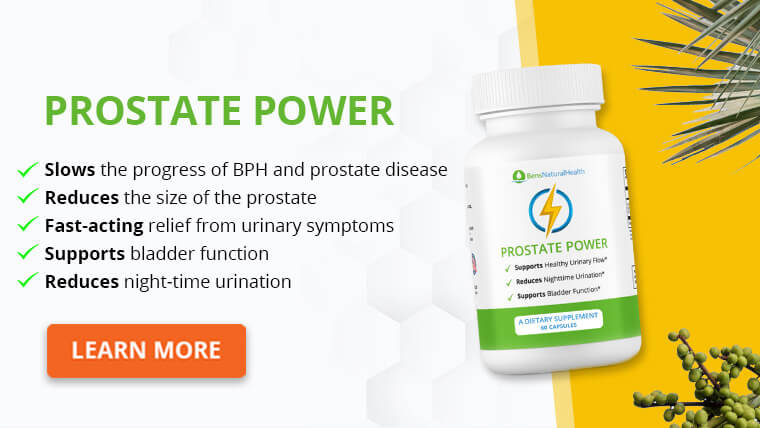Rosemary oil vs minoxidil: both products have been marketed as natural hair loss treatments.
But how do they stack up against each other? While rosemary oil is derived from the perennial herb and is regarded as a natural remedy to stimulate hair growth, minoxidil is a topical solution usually prescribed by medical professionals.
Is there any difference in how they are used and their side effects?
Moreover, can I use minoxidil and rosemary oil together?
Rosemary oil is mainly seen as a herbal remedy, and minoxidil is a synthetic drug, but beyond that, there are many aspects we should consider before choosing which one to use.
In this article, we will compare rosemary oil vs minoxidil and help you make an educated decision.
What is rosemary oil?
Rosemary oil is an essential oil made from the leaves of the rosemary plant Rosmarinus Officinalis, a perennial herb from the Mediterranean region.
It is a popular remedy for a variety of medical and cosmetic purposes, including treating alopecia (hair loss), a common problem that comes with the aging process.
People can use rosemary oil topically to help reduce hair loss and promote hair growth. It works by stimulating the scalp and increasing circulation of the scalp, which helps to nourish the hair follicles.
Rosemary oil is often used in conjunction with other treatments, such as minoxidil, a medication used to treat androgenic alopecia, a form of balding.
Rosemary oil can also be used in aromatherapy to help reduce stress, which can cause hair loss.
In addition, it is believed to have antioxidant and anti-inflammatory properties, which may soothe immune system reactions and help to improve the health and appearance of the hair and scalp.
As with many other herbal treatments, rosemary oil has many applications. Since it has plenty of phytonutrients, it has several mechanisms by which it can improve follicle function and other health parameters.

Rosemary oil for Hair Treatment
Rosemary oil is known for its anti-inflammatory and antibacterial properties, which help reduce inflammation in the scalp, improve circulation in the scalp, promoting healthy hair growth. It is considered as a holistic way to treat alopecia, reduce dandruff and improve the scalp’s overall health, allowing for better absorption of nutrients.
Rosemary oil is believed to be a potential treatment for hair loss due to its high content of antioxidants, which can help to reduce inflammation, nourish the scalp and reduce the production of DHT.
It also contains compounds such as camphor, limonene, and rosmarinic acid, which can help combat bacteria and fungi that can cause hair loss.
The oil can be applied directly on the scalp or blended with other carrier oils to enhance its effects.
Minoxidil for Hair Treatment
Minoxidil is a topical medication approved by the FDA to treat alopecia. It is applied directly to the scalp and increases blood flow to the hair follicles, promoting hair growth and reducing hair shedding.
Minoxidil is a topical solution that medical professionals usually prescribe to treat male pattern baldness or alopecia.
It works by increasing blood flow to the scalp, which can stimulate the hair follicles and promote hair growth.
The solution must be applied regularly for several months before any significant results can be seen.
The formulation is probably one of the most striking differences between these hair loss treatments.

Rosemary oil vs Minoxidil
In terms of effectiveness, which is better? Rosemary oil or minoxidil? There is some evidence to suggest that rosemary oil may be as beneficial as minoxidil when it comes to treating alopecia.
One study comparing rosemary oil vs minoxidil found that both were effective in reducing hair loss in the study participants.
In the rosemary oil group, 38% of participants experienced a mild increase in hair growth after 6 months of daily applications. Compared to that, the 2% minoxidil group had 24% participants with a mild increase in hair growth.
The effectiveness was much better in terms of the reduction of hair loss. At 6 months, 92% of patients using minoxidil at 2% experienced a mild decrease in hair loss. In the rosemary oil group, patients reported a moderate reduction of hair loss 82% of the time.
This rosemary experiment concludes in summary that rosemary oil may be more effective than minoxidil in protecting against hair breakage and hair loss and may even stimulate your hair follicles to grow new hairs.
However, this trial was based on questionnaires instead of an objective assessment of alopecia, highlighting the importance of new comparative trials to confirm these findings.
Side effects
Rosemary oil is generally considered safe for use, with few side effects. The most common side effect is mild skin irritation, which is usually temporary and can be treated with creams, lotions, and other topical treatments.
Additionally, some people may experience an allergic reaction to the oil, which can manifest as a rash, itching, or redness.
It is essential to test a small amount of the oil on a patch of skin before using it on the scalp.
Minoxidil is a more potent treatment for alopecia and hair loss, and as such, it carries with it more potential side effects.
These may include dryness, itchiness, and a burning sensation on the scalp. Additionally, this medication can cause scalp irritation and flaking skin.
It is important to consult a physician before beginning a course of treatment with minoxidil, as they can recommend the best course of action.
Sign Up For Our Newsletter!
- Receive 10% off our best-selling supplements
- Get Your FREE PSA Lowering Diet Plan
- Be the first to hear about sales and promotions
- Stay up to date on our latest health news
Cost
When deciding between rosemary oil vs minoxidil, one must consider one’s budget and treatment goals.
Generally speaking, those on a tight budget and looking for an inexpensive solution may find rosemary oil a suitable option.
Rosemary oil is relatively cheap and can be purchased in various forms, including essential oil, ointment, and shampoo.
A bottle of rosemary oil typically costs around $10-15, while a bottle of minoxidil can cost anywhere from $30-50.
How long do they take to work?
The hair regrowth process is another similarity between rosemary oil and minoxidil. Both treatments should be used over a very long period for them to start working on your scalp and providing visible results.
The minimum period to start seeing the benefits of rosemary oil and minoxidil is 3 months of daily applications.
However, if you want to see the full benefits of both products, studies suggest that you keep using them for at least 6 months.
Continued use will increase the effectiveness of the treatment and help you see results faster. Another thing you can do is practice scalp stimulation techniques with a scalp massage after applying either of them.
Can you use rosemary and minoxidil together?
Minoxidil is often combined with other treatments, such as rosemary oil. Since both are topical treatments, there is a very low chance of systemic drug interactions.
Minoxidil is excellent in increasing blood flow to the scalp. However, it doesn’t have extra mechanisms to stop inflammation, prevent dandruff and bacteria that may promote hair loss, and block DHT in the scalp.
These additional mechanisms provided by rosemary oil may further improve the benefits of the hair loss treatment and give you better results than using minoxidil alone.
Thus, the combination of minoxidil and rosemary oil can be a powerful tool in any hair regrowth protocol if you are perseverant and use these treatments as intended.
Conclusion
Hair density can be affected by many factors, including sex hormones, thyroid function, scalp infections, and inflammation. However, many conditions leading to alopecia affect the blood flow to the hair follicles.
Minoxidil and rosemary leaf extract act by increasing cell proliferation and nourishing the follicles through an increase in the scalp blood flow.
This is the main mode of action of minoxidil, but rosemary oil has additional phytochemicals and added mechanisms against skin-surface bacteria, inflammatory cytokines, and other harmful elements.
Both treatments are accepted for hair loss, both require extensive treatment for a minimum of 3 months to start seeing the results, and they are both effective.
They can also be used together and in conjunction with stimulation exercises, as in a scalp massage session, for better results.
Explore More








